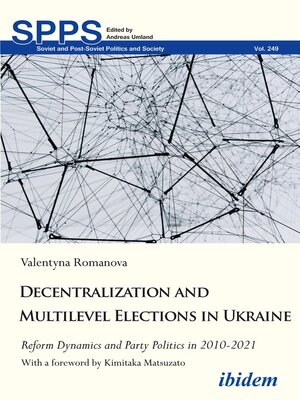Decentralization and Multilevel Elections in Ukraine
ebook ∣ Reform Dynamics and Party Politics in 2010–2021 · Soviet and Post-Soviet Politics and Society
By Valentyna Romanova

Sign up to save your library
With an OverDrive account, you can save your favorite libraries for at-a-glance information about availability. Find out more about OverDrive accounts.
Find this title in Libby, the library reading app by OverDrive.



Search for a digital library with this title
Title found at these libraries:
| Loading... |
The post-2014 decentralization policy is consolidating the center-periphery relations in Ukraine. Already before 2014, domestic policymakers had been drafting proposals for local amalgamation and an increase of regional authority. Before the 2020 watershed subnational elections, only the local amalgamation policy was completed, however. A significant repercussion of the post-2014 decentralization reform has been a sharp decrease in congruence of the shares of competing national parties in the parliamentary, regional, and municipal electoral arenas. On the other hand, the party system has, at the municipal level, become less fragmented. Regional councils have, in contrast, remained highly fragmented. The outcomes of the indirect elections of regional councils' heads have benefitted Ukraine's ruling party. Methodologically, the book illustrates the added value of investigating elections from a multilevel perspective. It contributes to the comparative exploration of party systems change over time, and constitutes a case study of more general patterns of interaction between municipal decentralization and political development in democratizing states.






